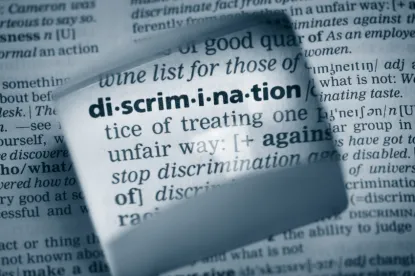Bound by precedent, on July 28, 2016, a panel of the U.S. Court of Appeals for the Seventh Circuit held that sexual orientation discrimination is not sex discrimination under Title VII of the Civil Rights Act of 1964. The panel thereby affirmed the decision of the U.S. District Court for the Northern District of Indiana dismissing the claim of Kimberly Hively, a part-time adjunct professor at Ivy Tech Community College, that she was denied the opportunity for full-time employment on the basis of her sexual orientation.
The importance of the Seventh Circuit panel’s opinion is not in its precise holding but both (i) the in-depth discussion of Seventh Circuit precedence binding it, the decisions of all of the U.S. Courts of Appeals (except the Eleventh Circuit) that have held similarly, and Congress’s repeated rejection of legislation that would have extended Title VII’s protections to sexual orientation, and (ii) the multifaceted bases for its entreaties to the U.S. Supreme Court and the Congress to extend Title VII’s prohibition against sex discrimination to sexual orientation discrimination.
The Seventh Circuit panel highlighted the following reasons as to why the Supreme Court or Congress must consider extending Title VII’s protections to sexual orientation:
-
The EEOC ruled last year that sexual orientation is sex discrimination under Title VII. The Equal Employment Opportunity Commission (EEOC) held for the first time, in 2015, that “sexual orientation is inherently a ‘sex-based consideration” and that sexual orientation discrimination is “necessarily an allegation of sex discrimination under Title VII.” The EEOC’s rationale was that sexual orientation discrimination (i) “necessarily entails treating an employee less favorably because of the employee’s sex”; (ii) is associational discrimination when an employer discriminates against an LGBT employee on the basis of the sex of the person they marry or date; and (iii) is a form of discrimination based on gender stereotyping. Although the EEOC’s decision applies only to government employees, its reasoning would apply to private-sector employment. Further, while the EEOC’s decisions are not binding on the courts, they are entitled to some deference, given that the EEOC is the agency primarily charged with enforcing Title VII.
-
The distinction between sex stereotyping and sexual orientation discrimination is arbitrary. The U.S. Supreme Court declared in 1989 that Title VII protects employees who fail to comply with typical gender stereotypes. On that basis, courts have recognized claims for sex stereotyping as constituting claims for sex discrimination under Title VII, although, in doing so, courts have had to draw the line between sex stereotyping discrimination, which is prohibited under Title VII, and sexual orientation discrimination, which is not prohibited under Title VII. This has led to the conclusion by many courts that the line between sex stereotyping discrimination and sexual orientation discrimination is arbitrary.
-
LGBT rights are protected in other contexts and other jurisdictions. The Supreme Court has protected LGBT rights under constitutional analyses by (i) striking down a state constitutional amendment prohibiting the protection of LGBT persons from discrimination on the basis of sexual orientation, (ii) protecting the right to engage in private consensual sexual conduct without government intervention, (iii) striking down the Defense of Marriage Act, and (iv) declaring the right of same-sex couples to marry in every state. Also, 22 states (and the District of Columbia) prohibit sexual orientation discrimination in employment, and 12 additional states prohibit sexual orientation discrimination in government employment.
-
Title VII’s association protections accorded on the basis of race should apply equally to LGBT individuals. The EEOC and the courts protect employees in interracial relationships—whether marriage, friendships, and other associations. The Seventh Circuit panel reasoned that, since the same standard of protection is accorded to each of Title VII’s protected categories, the same protection should be accorded to individuals in a relationship, regardless of sex.
-
The definition of “sex” would not need to be expanded. The Supreme Court has already said, “Congress intended to strike at the entire spectrum of disparate treatment of men and women resulting from sex stereotypes.”
The Seventh Circuit panel concluded that the EEOC, many courts, and even the Seventh Circuit panel itself do not condone a legal structure that tolerates employment discrimination on the basis of sexual orientation. However, until the Supreme Court issues an opinion or Congress enacts legislation that extends Title VII’s protection against sex discrimination to sexual orientation discrimination, the courts must adhere to precedent.
What the Decision Means for Employers
The takeaway for employers is not that Title VII fails to currently prohibit sexual orientation discrimination in employment. Rather, the Seventh Circuit panel’s decision reminds us that the EEOC and several district courts have held that Title VII’s prohibition against sex discrimination extends to sexual orientation discrimination and close to half of the states prohibit sexual orientation discrimination in employment.



 />i
/>i

